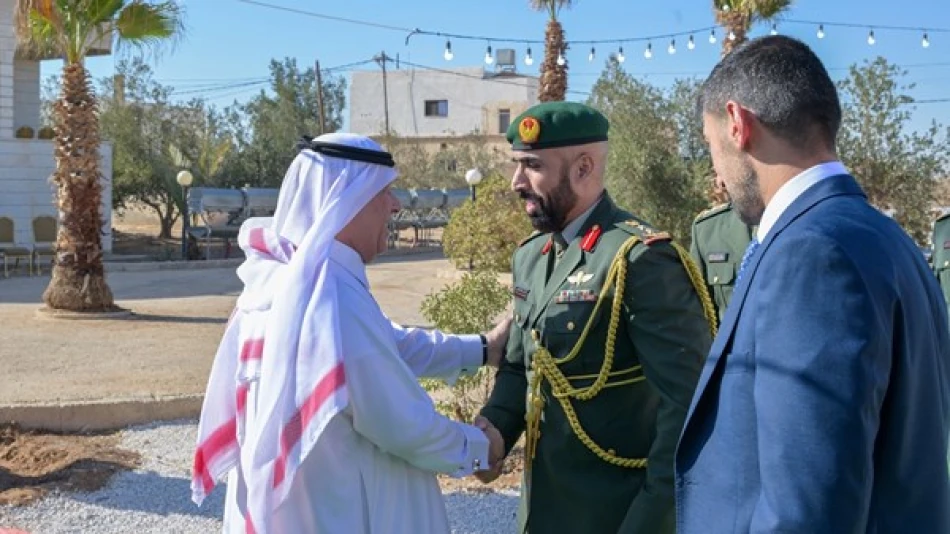
Emirati Military Chief's Passing Mourned: Defense Ministry Delegation Pays Respects
UAE Military Pioneer Who Built Modern Armed Forces Dies, Cementing Jordan-Emirates Defense Legacy
The death of Lieutenant General Awwad Mohammed Al-Khalidi, the UAE's first Chief of Staff of the Armed Forces, marks the end of an era for Arab military leadership and underscores the enduring defense partnership between Jordan and the Emirates. Al-Khalidi's passing last Friday has prompted high-level condolences that reflect decades of strategic cooperation built on personal relationships between founding leaders.
A Founding Father of UAE Military Doctrine
Colonel Ali Saif Al-Kaabi, the UAE's military attaché to Jordan, led a military delegation to the town of Khalidiya in Mafraq Governorate to offer condolences for Al-Khalidi's death. The gesture carries weight beyond diplomatic protocol—it represents the continuation of military ties forged during the UAE's formative years as a nation.
Al-Khalidi belonged to the first generation of Arab military commanders who shaped the region's defense institutions from the ground up. As the UAE's inaugural Chief of Staff, he worked directly with the late Sheikh Zayed bin Sultan Al Nahyan and King Hussein bin Talal of Jordan to establish the foundations of the modern Emirati military.
Strategic Partnership Beyond Ceremonial Ties
The UAE-Jordan military relationship exemplifies how personal connections between leaders can evolve into institutional partnerships. What began as cooperation between Sheikh Zayed and King Hussein has expanded under current leadership—UAE President Sheikh Mohammed bin Zayed Al Nahyan and Jordan's King Abdullah II—to encompass comprehensive defense and security collaboration.
This partnership serves broader regional security interests, particularly as both nations navigate complex geopolitical challenges in the Middle East. Jordan's strategic position as a buffer state and the UAE's growing military capabilities create natural synergies for defense cooperation.
Legacy of Institution Building
Al-Khalidi's career trajectory—from military officer to minister to ambassador—reflects the multifaceted approach that characterized early UAE leadership development. His involvement in establishing the UAE's military doctrine came at a crucial time when the newly formed federation needed to build credible defense capabilities from scratch.
The timing of his leadership was particularly significant. The UAE's formation in 1971 coincided with regional tensions and the need for Gulf states to develop independent military capabilities as British influence waned. Al-Khalidi's role in this transition helped establish patterns of military professionalism that continue to define the UAE Armed Forces.
Regional Security Architecture
The condolences delivered by the UAE delegation underscore how military cooperation between Jordan and the Emirates contributes to broader Arab security coordination. Both nations have positioned themselves as moderate voices in regional affairs, making their defense partnership a stabilizing factor in Middle Eastern geopolitics.
Al-Khalidi's death removes one of the last direct links to the founding era of UAE-Jordan military cooperation, but the institutional frameworks he helped establish continue to serve both nations' strategic interests. His legacy lies not just in the positions he held, but in the professional military culture he helped create during the UAE's critical early years.
Most Viewed News

 Layla Al Mansoori
Layla Al Mansoori






